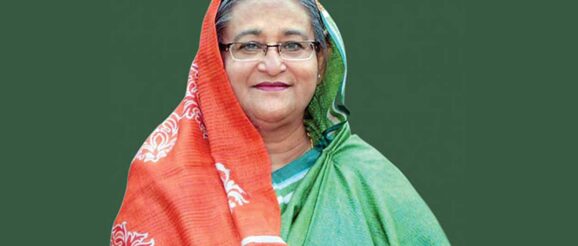Bangladesh’s SMART Vision: Driving Innovation, Sustainability, and Economic Progress – Tech Observer

Under the exceptional leadership of Prime Minister Sheikh Hasina, Bangladesh is swiftly transitioning into a dynamic and forward-looking economy. Anchored by the visionary goal of achieving a SMART (Sustainable, Mindful, Adaptive, Resilient, and Tech-driven) Bangladesh by 2041, the nation is on a remarkable path of development. Prime Minister Sheikh Hasina, in her recent address at Qatar University, stressed the significance of becoming catalysts for change. She outlined the key elements of the SMART Bangladesh initiative, solidifying the country’s position as an emerging economic powerhouse driven by strategic measures aimed at sustainable development.
A Vision for a SMART Bangladesh:
Prime Minister Sheikh Hasina envisions a SMART Bangladesh encompassing a smart government, smart economy, smart population, smart society, and smart workforce. The overarching objective is to stay abreast of the rapidly evolving world by harnessing the transformative potential of technology and digital innovation across all sectors. Through digitalization and the adoption of cutting-edge technologies, Bangladesh aspires to revolutionize critical domains including education, healthcare, agriculture, industrial production, business, and trade.
To bring this vision to life, the government has implemented a range of initiatives. Digital laboratories have been established in educational institutions spanning primary to higher education, equipping the younger generation with essential digital skills. Moreover, nationwide efforts are underway to establish computer training centers, incubation facilities, and hi-tech parks, fostering an environment conducive to innovation and entrepreneurship.
The government places a strong emphasis on skills development in emerging fields such as artificial intelligence and nanotechnology, ensuring a future-ready workforce. By empowering its citizens with digital literacy, Bangladesh aims to seize the opportunities presented by the fourth industrial revolution.
Digital Transformation in Education and Healthcare:
Education and healthcare are pivotal sectors receiving significant investment in Bangladesh’s pursuit of transformative change. The SMART Bangladesh initiative underscores the importance of digitizing education to create a knowledge-driven society. Consequently, the government has been actively promoting e-learning platforms, online resources, and digital classrooms, improving access to quality education across the nation.
Moreover, the exploration of emerging technologies such as virtual reality (VR) and augmented reality (AR) seeks to enhance the interactive and engaging nature of learning. This digital transformation not only enhances the quality of education but also equips students with the skills necessary to thrive in the digital era, fostering a globally competitive workforce.
In the healthcare sector, Bangladesh is leveraging technology to provide enhanced medical services to its citizens. The implementation of telemedicine, remote diagnostics, and digital health platforms ensures the accessibility of healthcare services, even in remote areas. These initiatives have proven particularly invaluable during the ongoing COVID-19 pandemic, enabling individuals to receive medical consultations and access healthcare resources from the safety of their homes.
Promoting Innovation and Entrepreneurship:
Bangladesh recognizes the pivotal role of innovation and entrepreneurship in driving economic growth and creating employment opportunities. In line with this, the government has established numerous innovation hubs, incubators, and startup accelerators throughout the country, fostering a culture of innovation and providing support to aspiring entrepreneurs.
Furthermore, policies and regulations that facilitate ease of doing business have successfully attracted both domestic and foreign investors. Bangladesh has witnessed a surge in startups focusing on areas such as fintech, e-commerce, agritech, and renewable energy. These startups not only contribute to economic growth but also address societal and environmental challenges through their innovative solutions.
Sustainable Development and Climate Resilience:
As part of its SMART Bangladesh vision, the country remains steadfast in achieving sustainable development while effectively addressing the challenges posed by climate change. Bangladesh is highly vulnerable to the adverse impacts of climate change, including rising sea levels, cyclones, and floods. To mitigate these risks, the government has implemented measures to enhance climate resilience and promote sustainable practices nationwide.
Renewable energy projects, such as solar power plants and wind farms, are being developed to reduce reliance on fossil fuels and foster the adoption of clean energy sources. Additionally, significant progress has been made in disaster management and early warning systems, minimizing the loss of lives during natural disasters.
Bangladesh’s proactive stance in global climate negotiations has garnered recognition for its efforts in adapting to and mitigating climate change. The country’s commitment to sustainable development aligns seamlessly with the United Nations’ Sustainable Development Goals (SDGs), setting a profound example for other nations.
The SMART Bangladesh initiative stands as a testament to the visionary leadership of Prime Minister Sheikh Hasina and the unwavering dedication of the Bangladeshi government to cultivate a dynamic and innovative economy. By embracing digital transformation, fostering innovation and entrepreneurship, and prioritizing sustainable development, Bangladesh positions itself as an emerging economic powerhouse in the region.
The emphasis on technology-driven solutions and human resource development equips the country to adapt to the evolving demands of the global economy. As Bangladesh continues its journey towards realizing a SMART nation by 2041, it serves as an inspiring model for other developing nations seeking to leverage technology and innovation for sustainable growth and comprehensive development.
